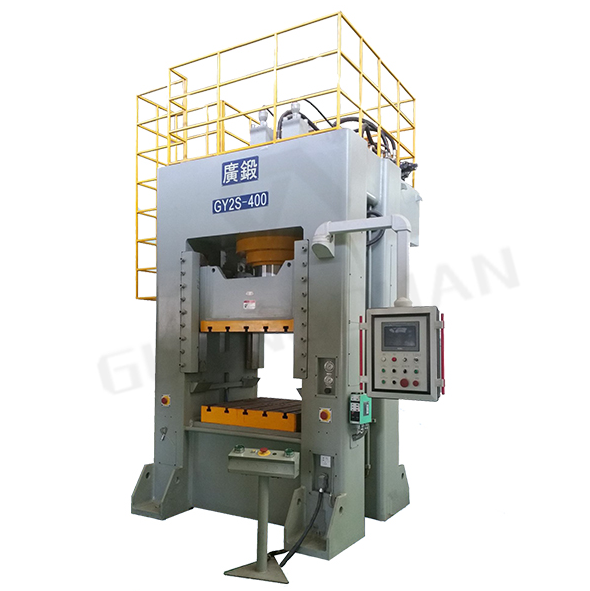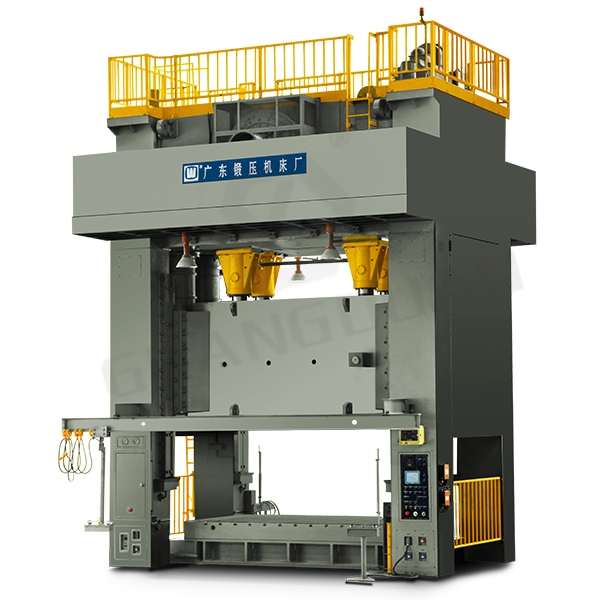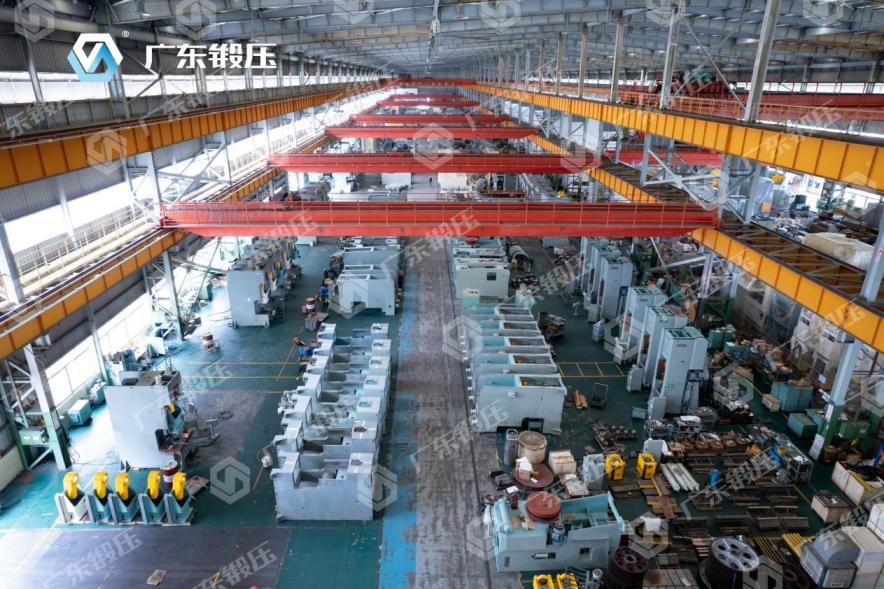
What Are Hydraulic and Mechanical Presses, and How Do They Work?
Hydraulic and mechanical presses are indispensable machines in modern manufacturing, particularly in metalworking. Whether it’s stamping, forging, or forming, these powerful tools can shape metal into almost any desired form with high precision and efficiency. But how do they actually work, and what makes them different from each other? This blog will explore both hydraulic and mechanical presses in-depth, comparing their features, advantages, and specific applications to help you choose the best solution for your needs.
Understanding Hydraulic Presses
Hydraulic presses operate based on the principles of hydraulics — that is, using the force of liquid (usually oil) to generate powerful pressure. The force is created by a piston inside a cylinder, which is driven by hydraulic fluid under pressure. This allows the hydraulic press to exert immense force with minimal energy consumption, especially when used for tasks such as bending, pressing, or deep drawing.

Much like a UK post code which provides precise location information, hydraulic presses offer pinpoint control over the pressure applied, ensuring accuracy during complex manufacturing processes.
Features of the Hydraulic Press GY2S Series
The GY2S Series Hydraulic Press is an excellent example of the advanced technology used in modern hydraulic presses. The main structure of the fuselage is made from high-quality welded steel, providing excellent rigidity while maintaining an aesthetic and easy-to-transport design. Its slider is built with a steel plate welded box structure and features eight-sided full guide rail guidance, ensuring superior precision and retention over time.
Additionally, the GY2S Series incorporates an intelligent servo-controlled system. This system uses a servo motor, pressure sensors, displacement sensors, and a PLC to achieve high precision, low noise, and low vibration, making the machine both energy-efficient and environmentally friendly. The system also enables easy, real-time adjustments via a touchscreen interface, with the capability to store 20 sets of mold parameters.
Safety is a top priority in the GY2S Series, with built-in features like a slider locking device and multiple protective measures, including a lower limit switch and anti-repetition functions. This makes it ideal for environments where safety is critical.
Mechanical Presses: A Different Approach
While hydraulic presses rely on fluid pressure, mechanical presses work through a mechanical linkage system, usually powered by an electric motor. The press exerts force by converting rotational energy into linear motion through gears, cranks, or flywheels. The force is then applied to a punch or die, typically in a stamping or forming operation.
Mechanical presses tend to be more straightforward and faster in operation compared to hydraulic presses. They are ideal for tasks that require quick and repetitive operations, such as stamping metal sheets or cutting parts with high throughput. The key advantage is their faster cycle times and higher tonnage in many cases.
Features of the Two-Point/Four-Point Single Acting Precision Mechanical Press
The Two-Point/Four-Point Single Acting Precision Mechanical Press is another fine example of a high-quality press machine. Manufactured from high-grade welded steel, the body of the machine undergoes high-temperature annealing to enhance rigidity and stability, which is crucial for ensuring long-term precision.

This machine is designed for high-speed operations, with self-aligning work tables and die clamping systems to improve die change efficiency. It also features a sophisticated guide rail system that ensures the stability of production, leading to high-quality outputs in every cycle.
The electrical controls of the Two-Point/Four-Point press rely on PLC technology, enabling automatic adjustments of air pressure, die set height, and air cushion stroke. This high level of automation reduces the need for manual intervention, improving overall efficiency and precision.
Hydraulic vs. Mechanical Presses: Which is Better for Your Manufacturing Needs?
Both hydraulic and mechanical presses offer unique advantages, and the choice between the two largely depends on the specific requirements of the task at hand. Understanding the strengths and limitations of each type can help you make a more informed decision.
Key Advantages of Hydraulic Presses
Precision and Control: Hydraulic presses excel in tasks requiring high precision and consistency. The constant pressure throughout the stroke makes them ideal for delicate tasks such as forming complex shapes, pressing parts without damaging them, or even deep drawing materials.
Energy Efficiency: Despite their ability to exert massive force, hydraulic presses are more energy-efficient than their mechanical counterparts, as they use fluid power to generate force.
Safety: The GY2S Series, for example, includes several safety features, making hydraulic presses safer in environments with high-force operations.
Key Advantages of Mechanical Presses
Speed: Mechanical presses generally offer faster cycle times compared to hydraulic presses, which is ideal for high-volume production environments. For tasks like stamping or punching, mechanical presses are typically more efficient.
Simplicity: The mechanical press’s operation is often more straightforward and easier to maintain, with fewer components susceptible to wear and tear. This can lead to lower long-term maintenance costs.
Higher Force for Large Loads: Mechanical presses can generate more force at a higher speed, which is ideal for heavy-duty applications like stamping large metal parts.
How Do Hydraulic Presses Offer Ultimate Precision in Metal Forming?
Hydraulic presses are renowned for their precision, especially in metal forming processes such as deep drawing, bending, and stamping. The key to their accuracy lies in their ability to maintain constant pressure throughout the stroke, ensuring that the material is shaped evenly and consistently.

The advanced hydraulic systems in machines like the GY2S Series make fine adjustments possible via servo-controlled mechanisms, giving operators the ability to tailor the press force, speed, and position precisely. This ensures that even the most intricate metal parts can be produced with tight tolerances.
How Do Hydraulic Presses Ensure Safety in High-Pressure Environments?
Safety is always a major consideration in high-pressure environments, especially in industries like automotive manufacturing or aerospace, where the forces involved can be extremely high. Hydraulic presses, such as those in the GY2S Series, incorporate multiple safety features that protect both the operator and the machine.
Key safety features include automatic locking devices to prevent the slider from moving unexpectedly, and fail-safes that automatically shut down the press if something goes wrong. Additionally, the use of a PLC (programmable logic controller) allows real-time monitoring of system conditions such as pressure, oil level, and temperature, ensuring that the press operates within safe parameters at all times.
Conclusion: Which Press Is Right for You?
Choosing between a hydraulic press and a mechanical press comes down to the specific needs of your operation. If you require high precision, constant force, and energy efficiency for delicate or complex metalforming processes, a hydraulic press is likely the best option. On the other hand, if your focus is on high-speed, high-volume production with heavy-duty operations, a mechanical press may be the better fit.
No matter which press you choose, GUANGDUAN offers cutting-edge solutions with over 65 years of experience in manufacturing high-quality hydraulic and mechanical presses. As one of the largest press machine manufacturers in Southern China, GUANGDUAN is committed to providing customers with advanced technology, exceptional service, and robust, reliable machines tailored to a wide range of industrial applications.
Contact GUANGDUAN today to explore the best press solutions for your manufacturing needs!
CONTACT US


Guangdong Metal Forming Machine Works Co., Ltd.
We are always providing our customers with reliable products and considerate services.
If you would like to keep touch with us directly, please go to contact us



